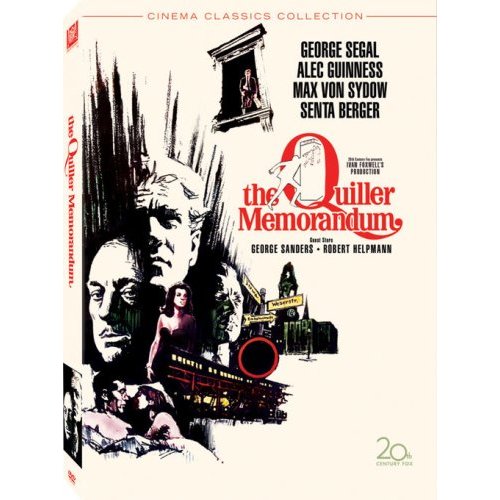
THE QUILLER MEMORANDUM
UK, 1966, 104 minutes, Colour.
George Segal, Alec Guinness, Max Von Sydow, Senta Berger, George Sanders, Robert Helpman, Robert Flemyng.
Directed by Michael Anderson.
The Quiller Memorandum is an efficient spy melodrama of the kind we have come to expect from films made from 1965-70. It shows disillusioned spies, icily unfeeling controls, potential traitors and clever character performances from the supporting cast.
But this film should have been much better than it is. Harold Pinter wrote the screenplay (he wrote The Pumpkin Eater, The Servant, Accident, The Go-Between). Direction is by Michael Anderson who has not achieved so well with the large tasks he has undertaken, e.g. The Shoes of the Fisherman, Pope Joan. As with most efficient spy thrillers, many questions are raised.
1. Was this a typical spy thriller? Why?
2. The central issue of the film was Neo- Nazism. Was this a particularly interesting issue? How relevant is it to contemporary European politics?
3. Was Quiller an engaging hero? Why?
4. How was Berlin itself one of the characters - was this important for the Neo- Nazi issue? How?
5. What irony was there in Pol's saying that the Neo- Nazis were just like everyone else in appearance?
6. What comment was there on the English way of doing things - the off-handed remarks, the dinners and Pol's breakfast.
7. what did you learn about the German and European situation from Quiller's interviews as Cooper. the journalist?
8. Did you understand what the Neo- Nazis were trying to do and why they acted so desperately?
9. Did you suspect Inger at any time of being a spy?
10. What is the morality of being a spy? Are all things lawful? Why?
11. Do films like this show a 'realistic' picture of a spy's life?
12. Had Quiller changed by the end of the film? Did he understand himself better? Was he disillusioned? Cynical?